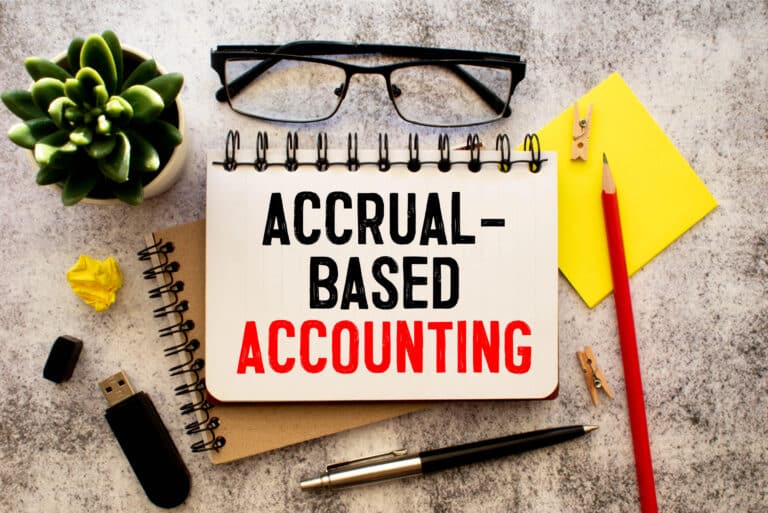There are many professionals who play their parts in building a supportive financial foundation for individuals, families and businesses. Bookkeepers, accountants and Certified Public Accountants (CPAs) are chief among these roles.
While many people interchangeably use the terms CPA and accountant, there are important distinctions to be considered when hiring a CPA or accountant. For starters, all CPAs serve as accountants, but only a percentage of accountants sit for and pass the CPA exam and attain the required 150 semester hours of higher education to become licensed.
CPAs VS. Accountants: Why does it matter?
According to a survey conducted by the AICPA, CPAs are considered some of the business world’s most trusted advisers. This sought-after designation permits CPAs to create audited financial statements, such as a profit & loss statement (P&L), balance sheet and cash flow statement. CPAs can also prepare tax returns, sign tax returns and represent taxpayers before the IRS for audits and other matters.
Comparatively, an accountant’s qualifications can range from people with limited experience and education to highly-qualified experts. It is noteworthy that many people make a distinction between an accountant and a bookkeeper, expecting an accountant to have an accounting degree. Bookkeepers are often given more repetitive clerical duties and are frequently supervised by an accountant or a CPA.

The requirements to become a CPA
Strict requirements dictate who earns the respected CPA designation. The first step is to earn an accounting degree. A minimum of 150 semester hours is needed, with a certain percentage of those hours dedicated to business or accounting. This basic step must be completed before they can sit for the CPA exam. The state board of accountancy in each state and territory is responsible for determining who qualifies to sit for the CPA exam. The CPA exam is a four-part exam, and is unified across all states and territories. At present, the pass rates for each part are around 50-60%.
Passing the CPA exam is a huge accomplishment, but it is not the end of the qualification process. Experience requirements still must be met in order to obtain a license to practice. These requirements vary by state.
In an effort to ensure that CPAs keep up with changing tax and reporting requirements, continuing professional education (CPE) courses must be completed on an annual basis to maintain a license. CPE requirements vary by state, too, but generally require 40 hours per year. Top CPAs take as many as 60-80 hours per year of CPE.
Does everyone need a CPA?
All business owners and many individuals should hire a CPA for certain reports and professional advice. Since every business must comply with federal, state and local financial compliance and tax law, obtaining a CPA’s expertise to meet these obligations makes good business sense.There are substantial penalties and fees that can be levied against a business who is found to be out of compliance with required filings.
While many individuals may not require the ongoing services of a CPA, that does not mean they won’t need to consult with a CPA at some point. For example, in cases where an individual’s tax return is very complicated, they can benefit from the expertise that a CPA offers. Additionally, CPAs can often lend important tax planning advice to save clients money.
In particular, when key assets are bought and sold or an individual inherits an estate or home, then consulting with a CPA is recommended. Or, perhaps you’ve received a notice from the IRS or are under audit. There is no substitute for good advice when you are forced into a unique situation that requires specialized knowledge and expertise.

The benefits of hiring a CPA
With a CPA, you access a proven professional’s technical skills and an expert who keeps up on current economic and regulatory issues. CPAs are in a position to compile, review and audit financial statements that are often requested by banks and lenders when you need to borrow capital.
CPAs are in a unique position to offer troubleshooting advice to business owners and individuals who run into a roadblock. A CPA’s extensive experience uniquely qualifies them as the perfect consultant for perspective on challenges that may seem insurmountable at first glance. While an accountant performs tasks, a CPA’s broad education and experience means they are capable of guidance that can truly make a big difference in the success of your business or personal financial affairs.
Encouraged to remain schooled in cutting-edge technology, many CPAs provide much-needed recommendations about possible system updates and data security considerations. When it is time to make important financial decisions about large purchases, CPAs conduct analysis to provide sound advice. Small businesses often consult CPAs on an as-needed basis before making big decisions.
Are CPAs required for business owners?
Business owners and individuals alike fear an audit by the IRS. By hiring a CPA, you are in luck if you’re audited. A CPA can represent you in that audit. An accountant is not qualified to provide this service. For more information on who can represent you in front of the IRS, check out this link.
Companies may also need audited financial statements.. Audited financial statements are required for any business that is publicly traded but may also be required by a bank or investor or in the instance of a merger or acquisition. Only CPAs are able to perform financial statement audits.
Savvy business professionals understand the difference between an accountant and a CPA. In some situations, an accountant is all that you need for ordinary clerical duties and daily accounting matters. However, there are other situations when a CPA is the best choice for the job. Typically, a CPA is more qualified to provide analysis and advice. Specifically, in tax matters, it makes much more sense to hire a CPA who can represent you in an audit.




